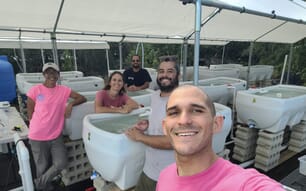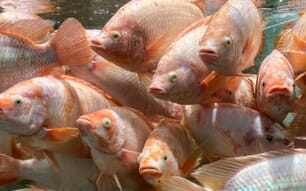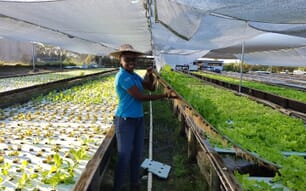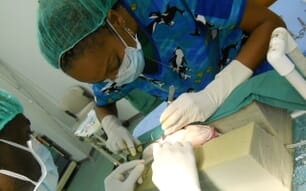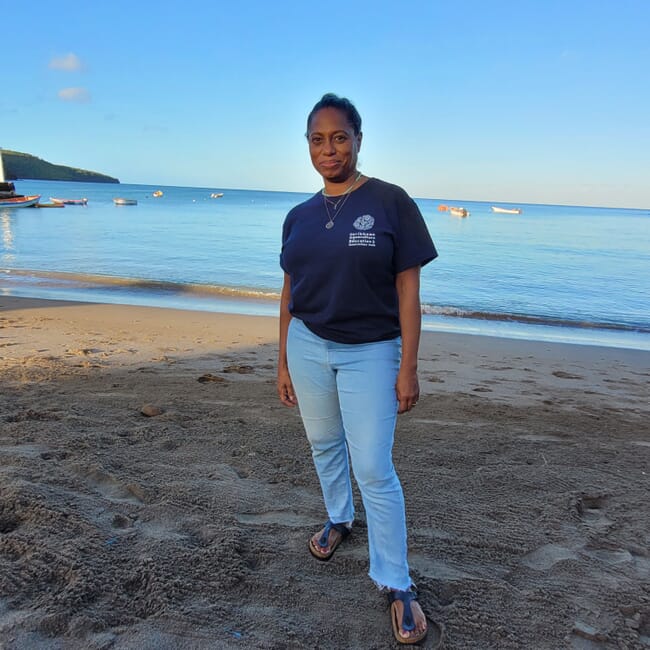
Dr Russo is also a regular columnist for The Fish Site
Dr Juli-Anne Russo, a Jamaican aquaculture scientist, has long been determined to see aquaculture thrive in the region where she was raised, but is aware that there are plenty of hurdles to overcome before her dream can be fulfilled.
“There are many more barriers to entry than other regions and I believe that targeted policies, technology transfer, capacity building, research and development and responsible investment are crucial to boosting sustainable aquaculture where it is most needed,” she reflects
Through the Caribbean aquaculture networking platform that she founded during the pandemic in 2021, Dr Russo formed Women in Caribbean Aquaculture (WiCA) in 2023 to highlight the little-known work of the region’s female aquaculture research scientists. As a team, WiCA worked together to understand how they could contribute to the growth of aquaculture in the region and in March 2024, the Caribbean Aquaculture Education and Innovation Hub was founded. It is the first woman-founded organisation dedicated to the growth of aquaculture in the Caribbean.
“We decided to start a non-profit as it enables us to look for funding and grants to do actual programmes targeted to women and youth, education, livelihood and investment,” she explains.
At the same time, she noted that talented young people who were looking to join the industry – such as graduates in marine biology – were struggling to find any useful information, so thought she could provide a platform to help solve both these challenges.
“My vision is that we have to change the culture. I’ve been consulting in the region for a long, long time and have been involved in projects where a lot of foreign investment has been made by organisations like the World Bank and US Aid but I’ve not seen them become sustainable. The ornamental fish project in Jamaica has been going on for more than 15 years, it’s something that could have made millions of dollars, and a lot of money has been injected into it, but it has not become sustainable. One reason why is that we don’t have enough locally skilled people on the ground to help farmers,” Dr Russo points out.
At the same time, she notes, there’s a complete absence of aquaculture-related courses in tertiary education.
“We need to have a continuous cohort at that level to contribute to practical research, teaching and training. We need to have policymakers who are aquaculture trained too,” Dr Russo argues.
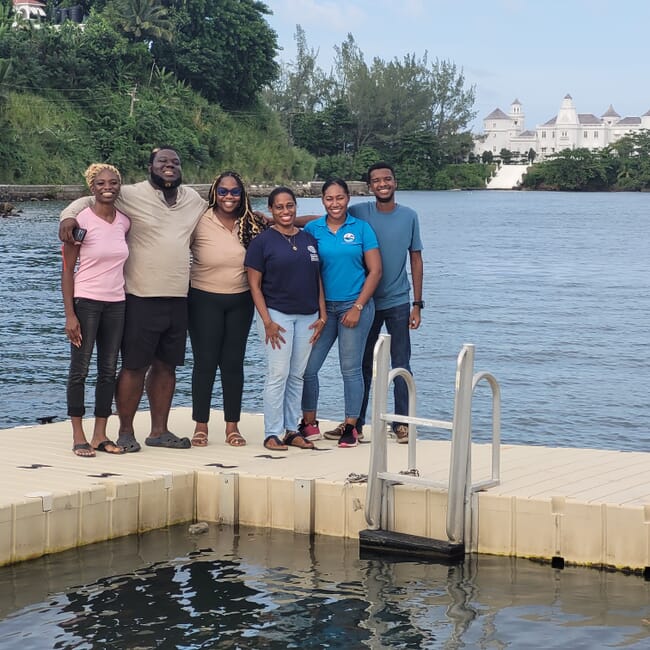
Educational initiatives
A large part of Dr Russo’s ambition to raise awareness of aquaculture is linked to training and education, and she’s looking to develop official aquaculture courses for both high school pupils and university students in the region.
She is also investigating tying aquaculture in with the Caribbean’s booming tourist industry, arguing that an industry which can potentially help to clean up the beaches and provide seafood should be embraced by the tourism sector.
“There is a link, but we don’t know how to sell it yet, because people come here for our beaches, but many are affected by sargassum and for the seafood, but most of it is imported,” she reflects.
“We started with networking, as I feel it’s very important for people within the region to connect with each other, as well as connect globally, so that all players within the aquaculture sectors can experience knowledge exchange with the global community,” she adds.
Russo sees several species as having potential in the region, including tilapia, oysters, sea cucumbers, seaweed and sea urchins. However, she is not purely looking to encourage corporate-scale businesses.
“Food security in throughout the Caribbean and especially in the smaller Eastern Caribbean islands is not about creating big ponds with big capital, it’s about teaching families how to grow their own food and start a small business– there’s no one really looking at that,” she reflects.
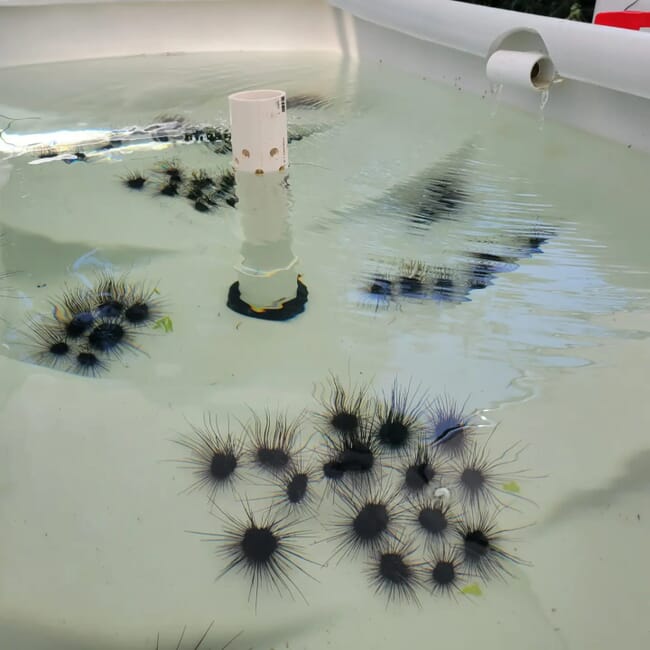
© Dr Stacy Williams, ISER-CARIBE
The beginnings of a programme
Although the hub doesn’t yet offer formal courses, it has started to recruit – and educate – young talent. The first cohort, who started in January, consists of eight third and fourth year students from the University of the West Indies, most of whom are studying marine biology and Dr Russo wants to show them examples of successful aquaculture businesses from the region and beyond.
While founded by three women – who are also the organisation’s trustees – the hub aims to empower people of all genders in the region, albeit with a particular focus on women and youth.
As well as Russo, the other members of the trio are Dr Stacey Williams – the co-founder of the Institute for Socio-Ecological Research (ISER Caribe), who specialises in restorative aquaculture projects in Puerto Rico involving sea urchins, crabs and coral reefs – and Dr Carla Philips Savage – an aquatic veterinarian from Trinidad and Tobago who is currently an associate professor at the Virginia-Maryland College of Veterinary Medicine in the US.
Meanwhile they are assembling a board, with early members including Katherine Bryar, from BioMar, who also championed and helped to fund WiCA and Dr Daniel Benetti, professor and director of aquaculture at the University of Miami, Rosentiel School of Marine Atmospheric and Earth Science, who has given full support to the organisation from its inception.
In order to increase the heft of the organisation, they are currently looking to raise $100,000 in funding, in part through webinars, networking events and consultation services to increase their outreach.
“We need to hire persons to run the business side of the organization, including project managers, IT services and marketing” Russo reflects.
They are also aiming to raise funding to help nine Caribbean scientists – seven women and two men – to attend for the first time the World Aquaculture Society’s Latin American and Caribbean conference, which is taking place in Colombia in September.
“This is a big deal because, when I went to the event last year, I was the only English-speaking person from the Caribbean. But this year I’ll be chairing a session on aquaculture in the Caribbean, as well as hosting a women in aquaculture side event, which I’m really excited about,” she explains.
“Our goal is to get our aquaculture scientists out into the world, because not enough people know about their research and funding is always a problem, so we’re reaching out to private business and to governments to see if we can get funding for them,” she adds
So far, private companies have come on board to sponsor six out of the nine. And the Latin American and Caribbean Chapter of WAS is providing a sponsored booth at the conference. Since Hurricane Beryl wreaked destruction across the Caribbean, some of this funding has been understandably reallocated to victims of the hurricane.
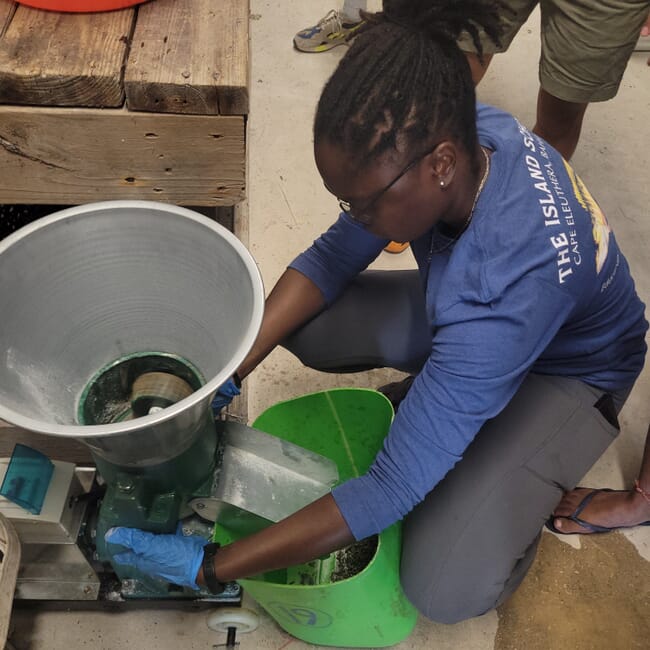
Mia Avril being trained to make aquafeeds © Juli-Anne Russo
Recent developments in Caribbean aquaculture
The scattered nature of aquaculture operations in the region means that most producers are working in isolation, but – by growing her network and gaining visibility – Dr Russo is slowly forming a clearer picture of the key players from across the Caribbean.
“There is a growing sea moss [seaweed] farming sector, which has taken off in St Lucia, Grenada, Dominica and other eastern Caribbean islands, and is also gaining interest in Jamaica,” she reflects.
Given the scarcity of large aquaculture players in the region, Dr Russo has had to look to companies that have an interest in food security for developing countries and have philanthropic outlooks.
“We have our mission – to encourage investment into Caribbean aquaculture, to promote gender inclusion and to support R&D, youth training and education – very set,” she concludes.

